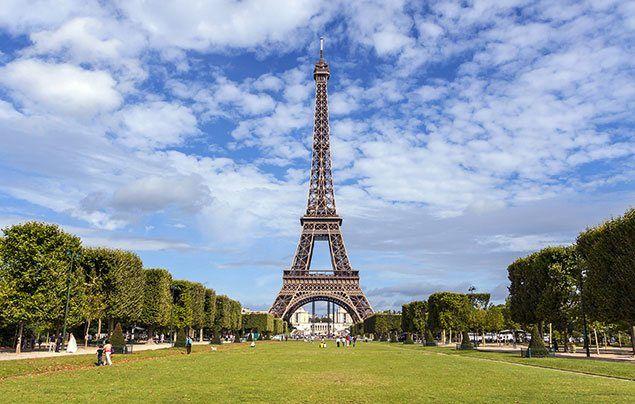In a significant development in Middle East diplomacy, President Emmanuel Macron announced that France will officially recognize Palestinian statehood, signaling a shift in the country’s longstanding approach to the Israeli-Palestinian conflict. The declaration, reported by The New York Times, underscores France’s desire to play a more active role in advancing peace efforts amid ongoing tensions in the region. This move is expected to impact international relations and provoke varied responses from global stakeholders.
France Signals Shift in Middle East Policy with Macron’s Palestinian Statehood Endorsement
In a notable pivot in French foreign policy, President Emmanuel Macron has publicly announced France’s decision to recognize Palestinian statehood. This move breaks from the traditionally cautious stance of many European nations and signals a desire to reenergize diplomatic efforts aimed at resolving the long-standing Israeli-Palestinian conflict. Macron emphasized that this recognition is a step towards restoring dialogue, peace, and stability in the Middle East, while urging all parties to engage constructively in future negotiations.
The announcement has already sparked diverse reactions across the international community, with some viewing it as a bold affirmation of international law and Palestinian rights, and others expressing concerns about potential diplomatic repercussions with Israel and its allies. Key elements of France’s new approach include:
- Support for a two-state solution based on 1967 borders
- Calls for an immediate end to settlement expansion
- Renewed efforts to engage both Israeli and Palestinian leaderships
| Aspect | France’s Position | Potential Impact |
|---|---|---|
| Diplomatic Relations | Balanced engagement with both parties | Increased mediation role |
| Peace Process | Active support for negotiations | Revitalization of talks |
| Regional Stability | Promotion of dialogue and cooperation | Possible easing of tensions |
Implications for French Diplomacy and Regional Stability in the Israeli-Palestinian Conflict
France’s decision marks a significant shift in its diplomatic posture within the Middle East, potentially reconfiguring traditional alliances and influencing regional dynamics. By formally recognizing Palestinian statehood, Paris positions itself as a proactive mediator advocates for a two-state solution, signaling a readiness to challenge entrenched diplomatic norms. This move is likely to elicit varied reactions from key players-ratcheting pressure on Israel to resume peace talks while simultaneously encouraging other European nations to reevaluate their stance on Palestinian sovereignty. Paris’ diplomatic recalibration aims to inject renewed momentum into stalled negotiations, fostering an environment where dialogue is prioritized over conflict.
The immediate impact on regional stability hinges on several critical factors: how Israel responds diplomatically, the reaction of the United States, and the broader Arab world’s engagement. France’s recognition may empower Palestinian leadership and enhance its legitimacy on the international stage, yet it risks exacerbating tensions if perceived as unilateral without a comprehensive peace framework. Below is a snapshot of potential diplomatic reverberations expected in the region:
| Stakeholder | Possible Reaction | Implication for Stability |
|---|---|---|
| Israel | Condemnation and diplomatic pushback | Heightened tensions, risk of diplomatic isolation |
| United States | Measured response; may urge restraint | Maintains status quo; potential mediation role |
| Arab States | Supportive but cautious engagement | Incremental regional cooperation possible |
| European Union | Varied member state reactions | Potentially fresh debate on unified policy |
Recommendations for International Stakeholders in Response to France’s Recognition Move
International actors are urged to engage with strategic diplomacy to navigate France’s landmark decision. Stakeholders should prioritize open dialogue channels between Israeli and Palestinian representatives to facilitate peaceful negotiations. Furthermore, there is a critical need to monitor regional responses and align diplomatic efforts to avoid escalating tensions across the Middle East. Active support for multilateral forums such as the United Nations will strengthen legitimacy and promote a unified approach towards a sustainable two-state solution.
Meanwhile, targeted economic and humanitarian assistance should be calibrated carefully to reinforce stability within Palestinian territories. Key recommendations include:
- Coordinated aid programs aimed at infrastructure and education development.
- Investment in conflict resolution initiatives that include grassroots participation.
- Enhanced information-sharing mechanisms to preempt potential crises.
| Stakeholder | Recommended Action | Expected Outcome |
|---|---|---|
| European Union | Facilitate diplomatic summits | Increased regional stability |
| United Nations | Strengthen peacekeeping missions | Reduced conflict flare-ups |
| NGOs | Execute community-based programs | Improved local resilience |
Key Takeaways
As France moves toward officially recognizing Palestinian statehood, President Emmanuel Macron’s announcement marks a significant moment in the ongoing Israeli-Palestinian conflict. The decision reflects a growing shift in international attitudes and underscores France’s commitment to advancing a two-state solution. How this development will influence diplomatic relations in the Middle East remains to be seen, but it undoubtedly adds a new dimension to the global dialogue surrounding peace and sovereignty in the region.




